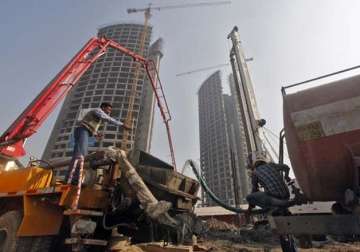Indian economy full of potential: Chinese expert
Beijing: The Indian economy is full of potential, but how to ensure real growth will test "the wisdom of leaders", said a Chinese expert in a state-run daily.An opinion piece "Can India benefit from Chinese
Beijing: The Indian economy is full of potential, but how to ensure real growth will test "the wisdom of leaders", said a Chinese expert in a state-run daily.
An opinion piece "Can India benefit from Chinese economic slowdown? Think twice" in the Global Times on Sep 7 said that as a rising power, India has set the economy as first priority since Prime Minister Narendra Modi took office.
"New Delhi also holds the ambition of replacing China as the new global factory. The slowdown in the Chinese growth rate seems to offer India a good chance to reach the goal," said Zhao Gancheng who is director of Center for Asia-Pacific Studies, Shanghai Institutes for International Studies.
Zhao said it raises the question of the nature, relevance and interactions of the Chinese and Indian economy.
"Many analysts correctly point out that the two economies started nearly at the same level in 1980s until the early 1990s, when the per capita GDP was almost the same. But in the next two decades, the fast growth of Chinese economy has widened the gap," said the opinion piece.
Dwelling on the factors that have hampered the Indian economy, the article said that most "important reasons lie in their policy options and domestic development rather than external environment or international factors. Frankly, China confronted a much harsher external situation during the period than India did".
"The Indian economy is full of potential, and how to make it become real growth tests the wisdom of leaders," it noted.
When Modi was chief minister of Gujarat, the state's remarkable achievements were a proof of how important good policies are. The Indian people chose Modi as their prime minister in the hope that the Gujarat model can be copied to the whole nation.
"As for China, having developed fast for decades, its economy has reached a new level with an annual GDP as high as $10 trillion ($7,594 per capita), compared to India's more than $2 trillion ($1,631 per capita). Given that accumulation and development, the Chinese economy has entered the "new normal", in which high growth rate turns to a medium rate, and the economic restructuring is well underway."
It went on to say that China is pursuing a higher level on the economic stage. That, in principle, should not affect the Indian economy negatively.
"The two economies are now in two different categories. Chinese actions will affect the developed economies enormously, as has already been observed, but whether it grows fast or slow will not affect the Indian economy much," the article said.
Zhao pointed out that the success of the Indian economy in the years ahead lies in a number of crucial elements, and "the most important ones are likely the leadership's policy options and internal interactions, which have so far not yet presented a very optimistic picture".
"Although Modi has been devoted to creating an FDI-friendly environment in order to attract more investment, the results have not been as good as expected. Local interests are difficult for the federal government to coordinate and address when implementing relevant policies," Zhao added.
The opinion piece also observed that although the Chinese economy does not compete directly with the Indian one, the effect the former imposes on the global economy is likely to influence the Indian economy.
"In this regard, whether a slowing Chinese economy will really create more opportunities for the Indian economy needs rethinking."
"...if the global economy slows down further as part of the results of Chinese economic restructuring, it would be difficult to see why a sluggish world economy would help the Indian economy anyway."
